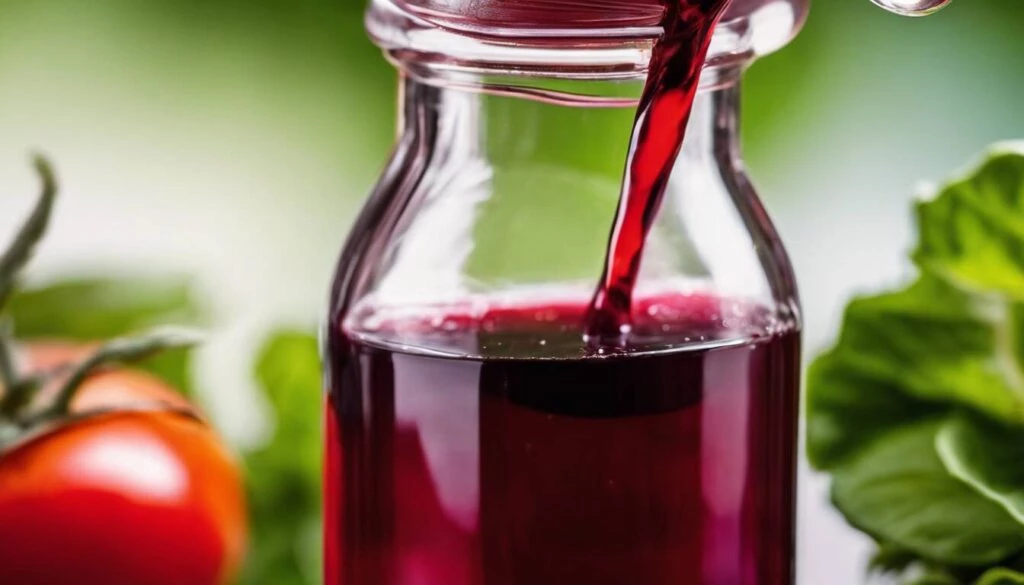Rose wine, often enjoyed for its delightful hue and refreshing taste, surprisingly contributes to our health as well. Within each sip hides key compounds like flavonoids and polyphenols that carry antioxidative properties, bravely neutralizing harmful elements known as free radicals within our bodies. Not only do these antioxidants protect our cells from damage, but they also contribute generously to dwindling the risk of chronic diseases, a little-known boon lying in each glass of blush. And as for heart health? The relationship is just as rosy.
Rosé wine, when enjoyed in moderation, is thought to provide certain health benefits due to the presence of antioxidants such as resveratrol. These benefits may include a potential increase in levels of good cholesterol and a possible reduction in blood pressure. However, it’s essential to remember that moderation is key and individual results may vary.

The Health Benefits of Rose Wine
You might be pleasantly surprised to learn that rosé wine, like other wines, contains certain compounds that may offer health benefits when consumed in moderation. Before we delve into the details, let’s talk about the key components that make this lovely wine not just enjoyable but surprisingly good for you.
Polyphenols are a group of beneficial plant compounds found in red grapes. They include tannins and anthocyanins, which give the wine its characteristic color. These antioxidants have been associated with a reduced risk of chronic diseases such as heart disease and cancer. It’s interesting to note that although rosé wine is made from red grapes with minimal skin contact during production, it still retains a significant amount of polyphenols, contributing to its potential health benefits.
Another exciting component found in rosé wine is resveratrol. This polyphenol is known for its potential positive effects on heart health and has been linked to improved brain function and a reduced risk of Alzheimer’s disease. Resveratrol seems to have a protective effect on blood vessels, reducing the risk of clotting and lowering bad cholesterol levels.
“It’s quite fascinating that a glass of rosé wine might provide these unexpected health benefits beyond simply being a delightful beverage.”
Of course, moderation is always key. Just because there are potential health benefits associated with rosé wine doesn’t mean you should overindulge. In fact, excessive alcohol consumption can negate any potential advantages and lead to various health risks.
Consider the Mediterranean lifestyle – where moderate consumption of wine, including rosé, is often enjoyed alongside a diet rich in fruits, vegetables, and healthy fats. This balanced approach to lifestyle and diet could contribute to the overall health and longevity observed in Mediterranean populations.
Let’s continue by exploring the specific health benefits of rosé wine and how it can be enjoyed responsibly as part of a healthy lifestyle.
Enriched With Antioxidants
When discussing antioxidants, we’re referring to tiny, powerful molecules that help safeguard the body from potential damage caused by free radicals. And you’ll find a generous amount of these helpful compounds in rosé wine. But what exactly are free radicals, and why do we need antioxidants to neutralize them?
Free radicals are like little troublemakers in the body—they are unstable atoms that can cause damage to cells. They are produced as a natural byproduct of various processes in the body, but they can also come from things like pollution, cigarette smoke, and UV radiation. When there are too many free radicals and not enough antioxidants to neutralize them, it can lead to oxidative stress—basically cellular damage. This kind of damage is linked to various chronic diseases, including heart disease, diabetes, and cancer.
So, where do antioxidants from rosé wine come in? Well, these compounds help neutralize free radicals. By doing so, they can potentially reduce cell damage and lower the risk of those chronic diseases we mentioned earlier.
Now, let’s meet two important types of antioxidants often found in rosé wine: flavonoids and polyphenols. Flavonoids have been shown to possess anti-inflammatory and anti-cancer properties, while polyphenols are known for their ability to improve heart health and reduce the risk of certain chronic conditions.
It’s worth noting that not all wines contain the same amount of antioxidants – as with anything else, quality and production methods play a role. For example, rosé wines made from certain red grapes or through specific winemaking practices may have higher levels of these beneficial compounds.
Understanding how these antioxidants work in rosé wine sheds light on how consuming it in moderation can potentially contribute to your overall well-being by providing protection against cellular damage and lowering the risk of chronic diseases.
The value of antioxidants in rosé wine goes beyond taste and enjoyment; it offers a glimpse into an unexpected source of wellness. Now, let’s explore the fascinating realm of resveratrol—its natural presence in wine and its impact on health.
Resveratrol: A Natural Phenol
Resveratrol, a compound found in grapevines, is primarily located in the skins and seeds of grapes. When used to make red wine, this compound is extracted during the fermentation process. It’s a key player in the health discussions surrounding red wine, and since rose wine comes from red grapes, it also contains this special ingredient.
One of the fascinating things about resveratrol is its potential health benefits. Studies have suggested that it may help protect the body against damage linked to high cholesterol and aid in inflammatory conditions. It’s believed to work as an antioxidant, combating harmful molecules in the body known as free radicals. This is important because free radicals can cause oxidative stress, leading to various diseases and contributing to the aging process.
How Resveratrol Works
Resveratrol works by activating certain genes that produce proteins playing a role in longevity and overall health. It’s currently being studied for its potential to decrease inflammation and support heart health. This could explain why many people associate moderate consumption of red and rose wines with positive impacts on their cardiovascular health.
For instance, imagine resveratrol as a little superhero inside your body, fighting off villains like bad cholesterol and inflammation. It swoops in to help keep your cells healthy, just like how rose wine makes you feel good after a long day!
It’s essential to note that while resveratrol holds promise for health benefits, further research is needed to fully understand its implications for human health. Nevertheless, its presence in rose wine adds another layer of intrigue to this popular drink.
Understanding the science behind resveratrol not only sheds light on its potential health benefits but also enhances our appreciation for the unique properties found in rose wine. It’s exciting to think about how something so simple can hold such complex secrets—just like a good bottle of wine.
The Impact on Heart Health
The health benefits of resveratrol found in rosé wine extend to the heart, offering potential advantages in improving cardiovascular health. Through numerous studies, it has been suggested that moderate consumption of rosé wine, with its resveratrol content, may contribute to these positive effects.
Resveratrol appears to have a protective effect on the cardiovascular system by supporting healthy blood vessels and reducing inflammation—it is also believed to enhance the function of the endothelium, the inner lining of blood vessels. A well-functioning endothelium plays a crucial role in regulating blood pressure and blood clotting, which are vital aspects of heart health.
Furthermore, resveratrol has been linked to increasing levels of high-density lipoprotein (HDL) cholesterol, commonly referred to as “good” cholesterol. HDL cholesterol carries cholesterol away from the arteries to the liver, where it can be processed and removed from the body—helping to reduce the buildup of artery-clogging plaque, thereby lowering the risk of heart disease and stroke.
Alongside its potential in elevating HDL cholesterol levels, resveratrol is also recognized for its ability to inhibit the formation of blood clots—by preventing platelets in the blood from sticking together, resveratrol reduces the likelihood of developing clots that can block blood flow through the arteries and lead to serious cardiovascular events.
It’s important to note that while resveratrol holds promise in promoting heart health, it should be emphasized that these benefits are associated with moderate consumption. Excessive alcohol intake can lead to adverse health effects, including an increased risk of high blood pressure and heart disease.
In summary, the consumption of rosé wine in moderation, owing to its resveratrol content, presents a potential avenue for enhancing heart health. The unique properties of resveratrol offer a compelling insight into how this antioxidant compound may contribute to a healthier cardiovascular system when enjoyed as part of a balanced lifestyle.
As we continue our exploration of beverages that may impact our well-being, let’s now delve into another intriguing topic—the potential enhancement of our immune systems.
Immune System Enhancement

It may sound surprising, but there are indications that moderate consumption of rose wine could be connected to a positive effect on the immune system. This potential benefit is linked to the antioxidants found in rose wine, particularly a compound called resveratrol primarily located in the skins and seeds of grapes.
Antioxidants play a key role in protecting your body from damage caused by harmful molecules called free radicals. They support your immune system by helping it identify and fend off germs and other invaders.
You might think of these antioxidants as tiny superheroes inside your body, fighting off the bad guys – the free radicals!
How does this relate to rose wine? Well, red wines have higher amounts of resveratrol compared to white wines. This is because white wines are generally not fermented in contact with the grape skins. Therefore, when you enjoy a glass of rose wine, you’re getting a dose of these beneficial compounds from the grape skins – just as if you were drinking a red wine.
Just like how eating an apple regularly can contribute to your overall health, enjoying rose wine in moderation can provide a similar boost to your immune system. Now, while there’s evidence pointing to the potential benefits of rose wine, it’s important to remember that moderation is key. Drinking too much can actually weaken your immune system, so enjoying a glass every now and then as part of a balanced lifestyle is the way to go.
So, next time you sip on a glass of rose wine, take comfort knowing that those antioxidants might just be giving your immune system a little extra boost!
As we continue our exploration of the health benefits of various types of wines, let’s shift our focus to the anti-inflammatory properties found in rose wine.
Anti-inflammatory Properties
Inflammation is the body’s natural response to injury or infection. However, chronic inflammation can contribute to various health issues. Certain compounds found in rosé wine have shown potential in reducing inflammation within the body. This makes for an intriguing connection between this delightful beverage and improved overall well-being.
The presence of polyphenols, particularly flavonoids like resveratrol and tannins, in rosé wine contributes to its anti-inflammatory potential. These compounds are known for their ability to neutralize harmful molecules called free radicals, which are linked to heightened inflammation levels in the body. By doing so, they help stave off cell damage and potentially reduce the risk of developing chronic conditions associated with high levels of inflammation, such as cardiovascular diseases and certain types of cancer.
It’s crucial to grasp the impact of these polyphenols on preventing and managing inflammation. They act as superheroes within your body, swooping in to combat the villains (free radicals) and restore balance.
It’s important to highlight that while these potential benefits are promising, it’s essential to consume rosé wine in moderation. Overindulgence can negate its positive effects and lead to other health concerns. This serves as a gentle reminder that balance is key when enjoying this popular beverage.
Understanding the impact of anti-inflammatory properties in rosé wine sheds light on its potential role in promoting overall health and well-being. The interplay between its components and our body’s mechanisms is truly remarkable, unveiling a deeper appreciation for this refreshing drink beyond its delightful taste.
Importance of Moderation
Moderation is truly key when it comes to the potential health benefits of rose wine. While there are some intriguing findings about the antioxidants and other beneficial components in rose wine, it’s important to remember that these potential benefits are closely tied to moderate consumption.
When we talk about moderate consumption, what do we really mean? For most adults, moderate drinking means having up to one drink a day for women and up to two drinks a day for men. This might sound surprising, but it’s in line with the dietary guidelines from many health organizations such as the Centers for Disease Control (CDC). Going beyond these limits can actually negate any potential benefits and can even be harmful. It’s like using a little bit of salt while cooking – it enhances the flavor, but too much can ruin the dish completely.
Now, we don’t want that, do we? The idea of moderation is more than just a recommendation; it’s essential advice to ensure the potential health benefits aren’t outweighed by the risks associated with excessive alcohol intake.
Moderation isn’t just about restricting quantity; it’s also about taking note of your own body and how you feel after drinking.
“As Winston Churchill once quipped, ‘I have taken more out of alcohol than alcohol has taken out of me.’ His statement underscores the importance of individual differences in metabolism and tolerance levels.”
Remember, like with any good thing in life, moderation is key. It’s all about balance and knowing when enough is enough, especially when it comes to something like enjoying a glass of rose wine for its potential health benefits.
For further insights into the world of wines and how to enjoy them responsibly, visit our collection at Wine Uncovered. Support us at our merch shop!

